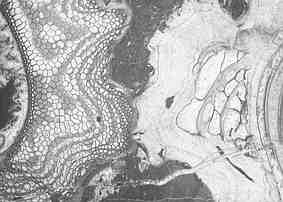Rudiste as an answer to the greenhouse climate of the Late Cretaceous
 Rome, October 29-30
Rome, October 29-30
Rome, October 29-30, ISPRA, via Curtatone 3
The course aims to illustrate the main factors that have controlled
the deposition of extensive neritic carbonates in the Cretaceous
and to investigate the major fossil groups that characterize them.
In particular the bivalves filter Rudiste, extinct at the end of
the Cretaceous, appear to have a high potential in such
investigations and in the activities of geological survey and
mapping. The training event is organized in two days and includes
classroom lectures combined with theoretical and practical
activities aimed at updating the participants on the following
subjects:
- the latest models of paleoclimatology and paleobiology related to the greenhouse climate of the Cretaceous;
- tools useful for the recognition of this fossil group for the geological survey activities, for palaeoenvironmental reconstructions and for the estimation of carbon fluxes in carbonate platform.
The course is intended for a maximum of 50 participants and is
directed primarily to researchers and geologists of the Geological
Surveys, Regional and Provincial Environmental Agencies and other
public research bodies and university students.
A certificate of participation will be released and the Order of
Geologists is evaluating the opportunity to recognize credits for
professional upgrading.
